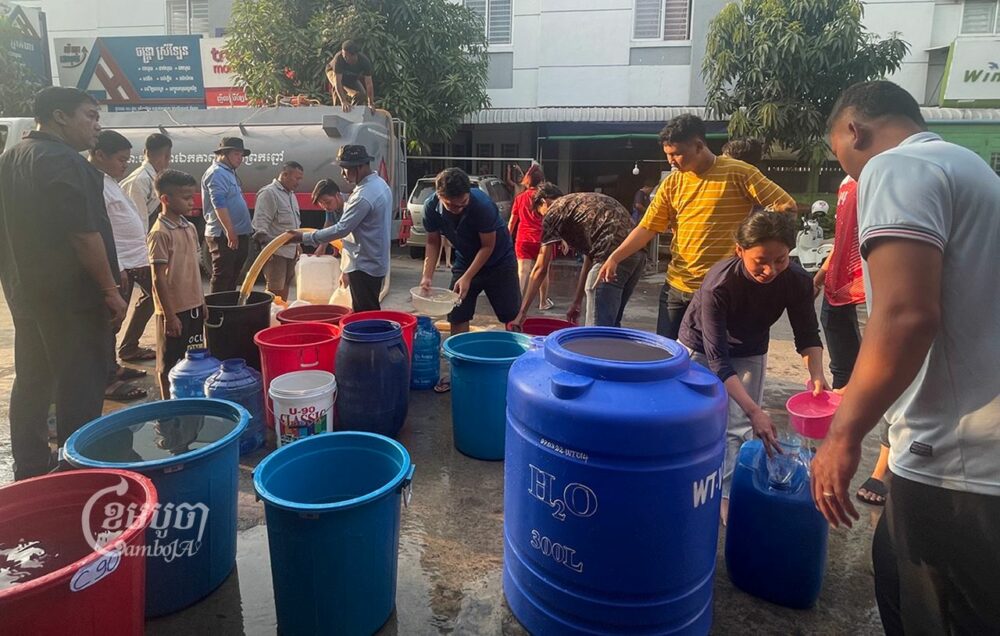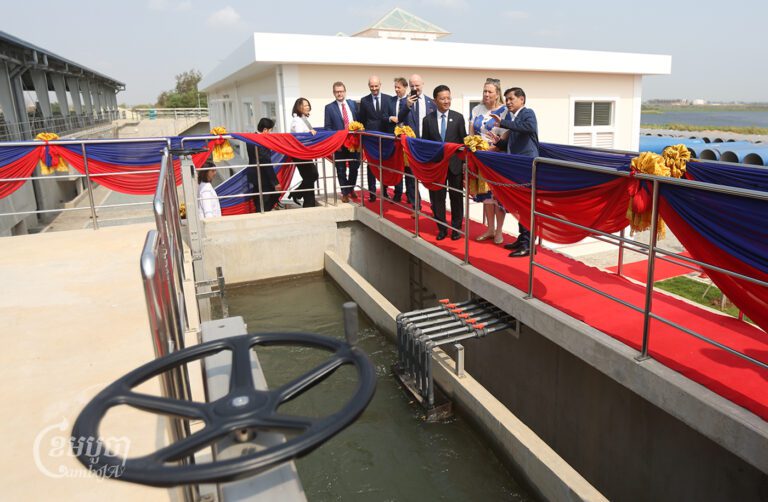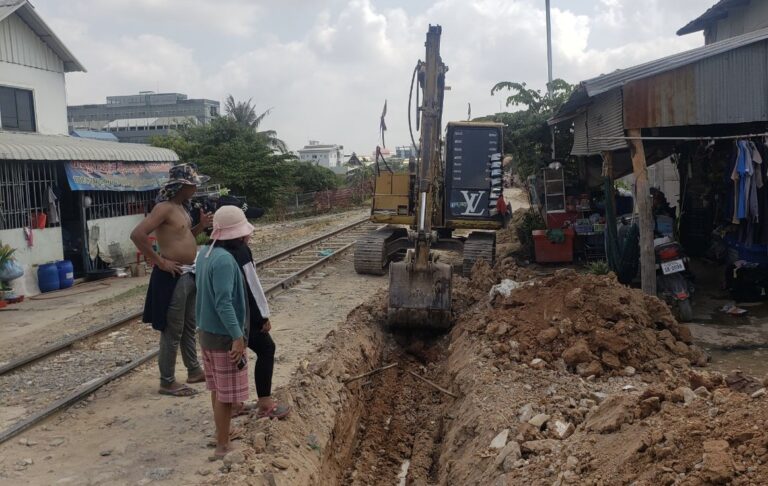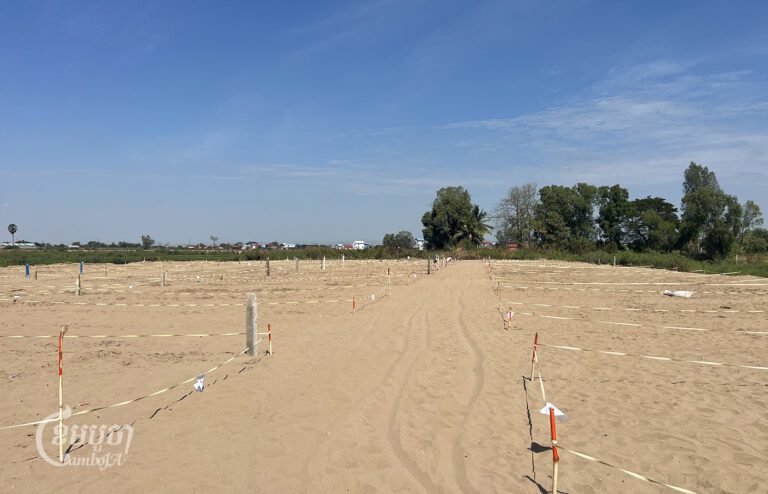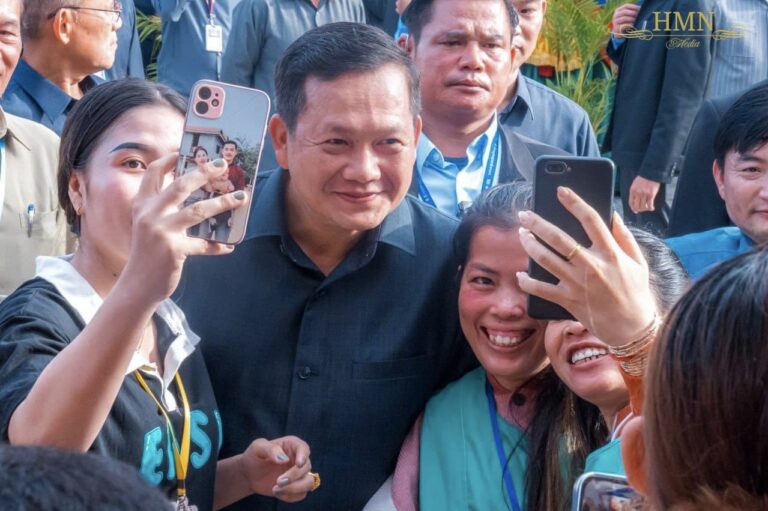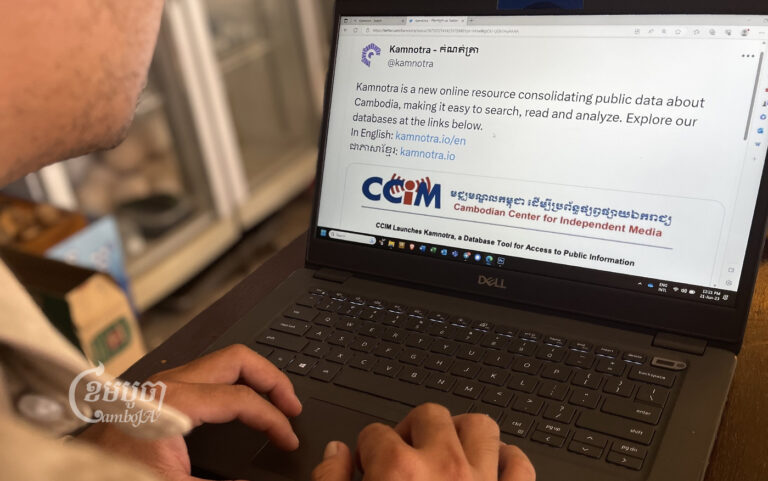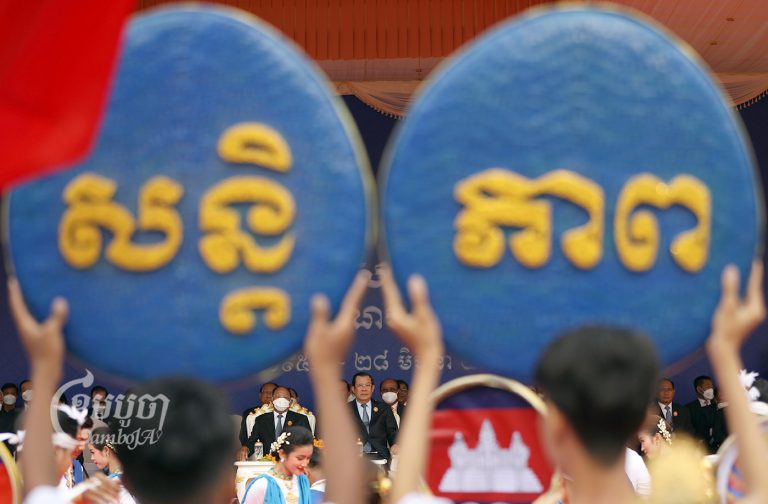Prime Minister Hun Sen promised that 100% of people living in Cambodia’s cities and towns will have access to clean running water by 2025.
At the Bak Kheng water treatment plant launch ceremony on Monday, Hun Sen said the plant is the first step to resolve water supply issues in the country. A second plant is scheduled to launch in 2024 and the government is seeking more financial assistance to build a series of water plants.
“For a country at war, there is only destruction, but now the achievements here can be said to be great achievements just like H.E Cham Prasidh told me,” Hun Sen said. “It [the water treatment plant] is an unprecedented historical achievement and [Cambodia] has not had a clean water supply [like this] for more than 100 years.”
The Bak Kheng water treatment plant cost $247 million to build. In addition to funding from the Cambodian government, the E.U. provided a $15 million donation. The French Agency for Development (AFD) and the European Investment Bank loaned Cambodia the rest of the required funding.
The second water treatment plant will cost about $381 million and the cost of a third plant is still being negotiated.
The launch of the new water plant comes after years of water shortages, especially in Phnom Penh’s suburbs and boreys during the dry season.
A report from the Phnom Penh Water Supply Authority states that there have been shortages of clean water in the city from 2016 to 2023 . The demand for water increased to more than 890,000 cubic meters per day in 2023, while the water production capacity of the Water Supply Authority was only 650,000 cubic meters per day.
By 2024, Phnom Penh and Takhmao residents will have access to enough water because the Phnom Penh Water Supply Authority will be able to produce more than 1 million cubic meters of water per day, the report states.
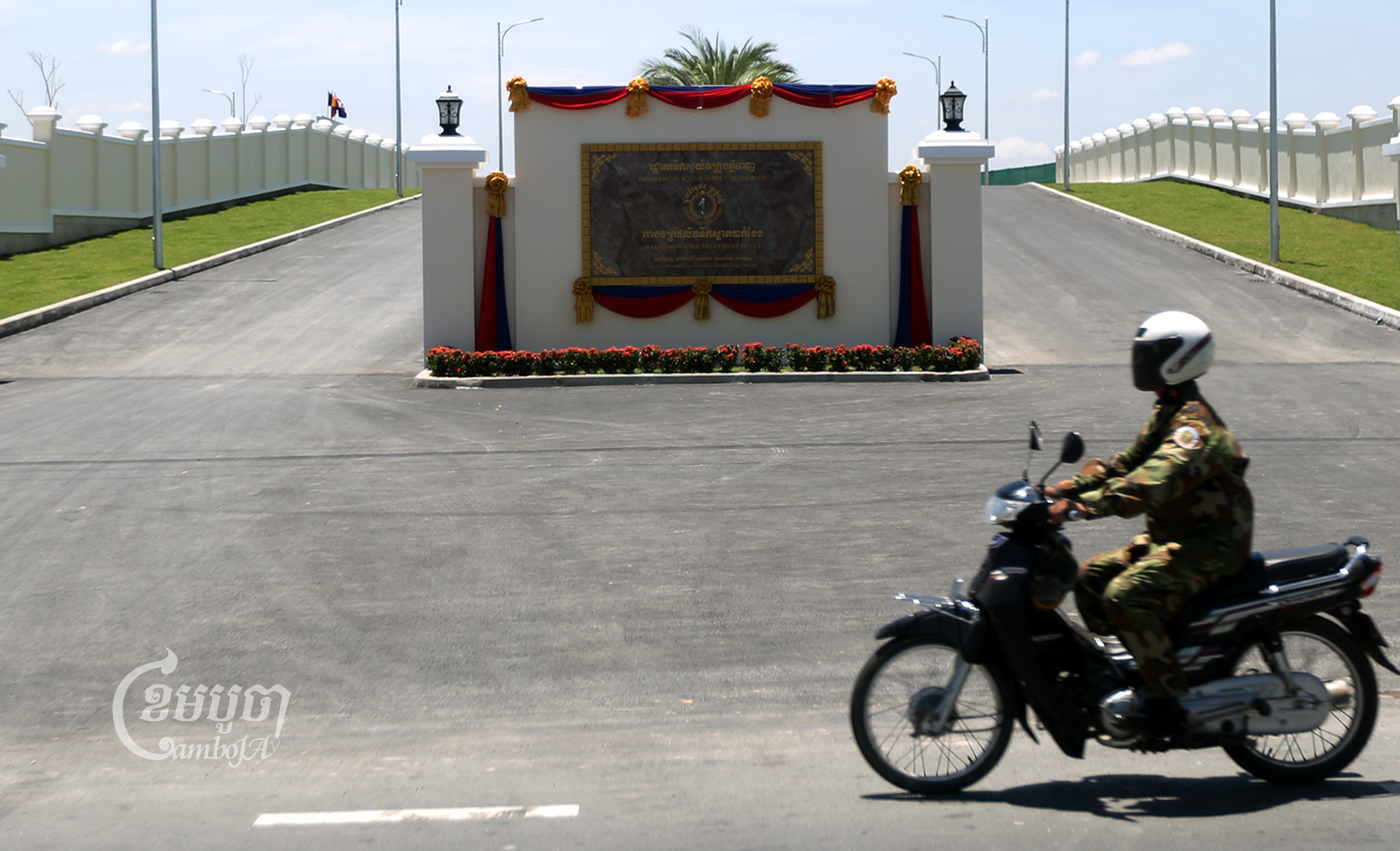
Long Naro, Director of Phnom Penh Water Supply Authority, could not be reached for comment.
Hun Sen said that although Cambodia is developing more comprehensive water and electricity systems, the country’s consumption continues to increase as the population grows.
“I can say that the imbalance in the demand for water supply still exists,” Hun Sen said. “That is why we need to continue to build to meet the needs.”
The government has considered a water policy for the poor, Hun Sen said, in which those who use up to 7 cubic meters of water will be charged only 400 riels per cubic meter. Those who use 8 to 15 cubic meters will be charged a higher rate of 720 riels per cubic meter.
If Cambodia does not have the capacity to supply water, there will be no high-rise buildings, he said.
“I believe that with the water available now, plus the water available next year, it will solve the water problem in the boreys that continue to be built and reduce the digging of wells,” Hun Sen said.
Suon Ramy, a resident of Samraong Krom commune, Pur Senchey district, said there is no clean water in her area during the dry season, which is challenging for her family. She expects that the Bak Kheng water treatment plant will help solve the problem of water shortages in the suburbs in the next dry season.
“The last dry season before the new year, there was no water supply. It was very difficult,” she said. “We are worried, but with a new water plant, I hope there is enough water for us.”
Soeung Saran, executive director of the Sahmakum Teang Tnaut (STT), said she thinks the government is working hard to provide clean water to Phnom Penh.
The Water Supply Authority and the relevant ministries are responsible for reviewing all construction projects, such as boreys, in order to know that the level of water supply can meet the consumption needs of the people, he said.
“There should be a specific limit to avoid increasing the amount of use while the water supply capacity is limited, so [the government] should consult with stakeholders about water supply,” Saran said.
Yang Kim Eng, president of the People’s Center for Development and Peace, believes that the establishment of a water treatment plant in Cambodia is a welcome achievement.
But what’s important to consider is whether the water treatment plant can meet the needs of the people or not, he said.Water treatment plants face a major risk of water shortage, especially in the dry season, if the water recedes or dries up the Mekong and Tonle Sap rivers.
“The Mekong or Tonle Sap rivers are facing dryness and can not be used to make clean water, which is a big challenge,” said Kim Eng.
Kim Eng said water shortages in some boreys, especially in newly built ones, happen almost every day in Phnom Penh and some surrounding areas. All borey project owners should cooperate with the Water Supply Authority so that the state can consider the possibility of establishing a clean water system to meet the needs in the area, he said.
“The government must study the expansion of boreys in the future, [including] which places especially need water and electricity, and how to offer it to them,” Kim Eng said.


